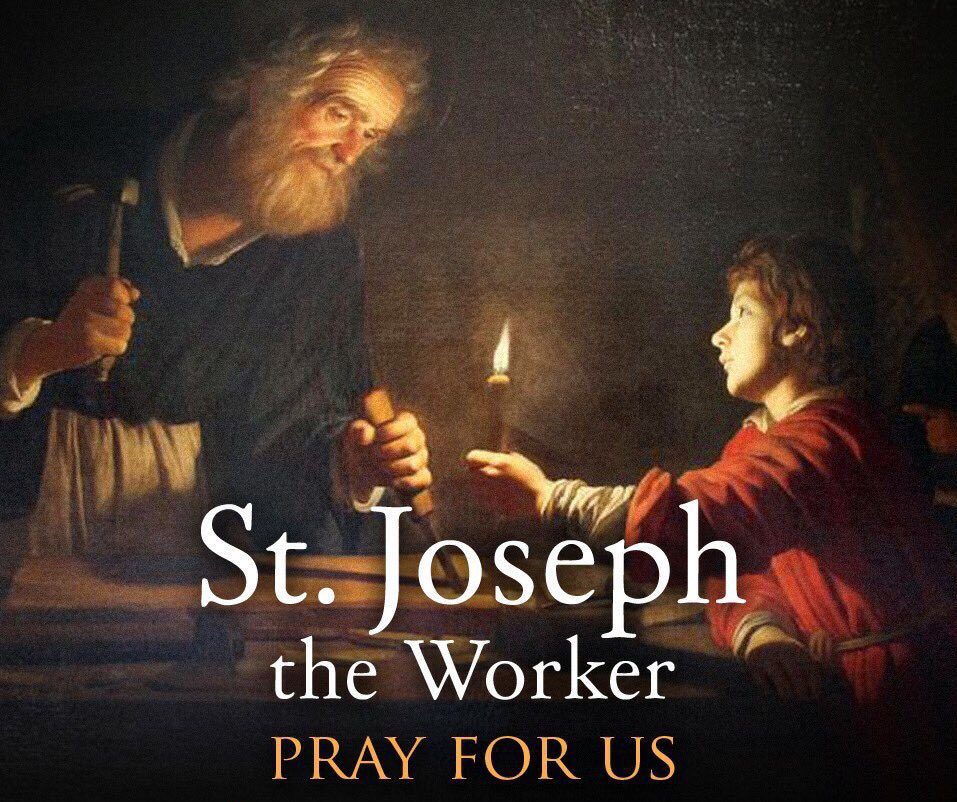
God blessed them and said: “Be fertile and multiply; fill the earth and govern it. . . God looked at everything and found it very good. Evening came, and morning followed—the sixth day. . . . On the seventh day, God completed the work . . . and found it to be very good.” (Genesis 1:28, 31; 2:2)
In these two quotes from the Book of Genesis, we see that from the very beginning, God sanctified and dignified work by these creative acts. And with the making of humanity, God handed over to us the responsibility of cherishing and developing God’s creation.
What a glorious commission God rendered unto each of us according to our unique gifts, whether they be the physical and artistic gifts of a carpenter, such as Saint Joseph, whose patronage we celebrate today, or what our ancestors and our contemporaries have achieved in so many fields of human endeavor. As Pope John Paul II said in his 1981 encyclical, Laborem Exercens, “Work bears a particular mark . . . of a person operating within a community of persons.”
Truly, this is one of the ways we have been made in the image and likeness of our God. Each of us today has been blessed with experiencing the satisfaction and fulfillment of being part of a community effort for a job well done. As teachers, we have seen the glint in the eyes of a student who understands for the first time a complex problem or when a childcare worker relives the anxiety of a lost child or comes to the aid of an abused woman, or when a missionary relieves the hunger and thirst of a poverty-stricken human being. Throughout our lives, we have known the dignity that goes along with a particular work that has been recognized for accomplishing different tasks by our peers. Nothing could point to the importance of the common laborer more than God’s choice of a humble carpenter known to us as Joseph of Nazareth to be the earthly father of his only begotten Son.
Unfortunately, untold numbers of people in today’s world never get to know the satisfying experience of labor and just compensation for their work or the praise for having completed a task well done. Moreover, how many never get to pursue their unique gifts or become masters of a trade? It is difficult to imagine the number of modern-day Mozarts, Monets, Shakespeares, and Pasteurs who have been lost over time due to a lack of opportunity and development. Instead, millions of people are given a pittance for their labor, children are forced to work in factories, denied their childhood, and deprived of an education. Thousands of migrants all over the world seek work but are denied because they are undocumented. And yet, when they are employed for meager wages, they receive no benefits or guarantees for a secure future.
How many of us have purchased clothes and noticed the labels that read they were made in Malaysia, Zimbabwe, or Bangladesh? It might be a good practice to pray to Saint Joseph the worker for the person or child whose hands make that particular garment that we are wearing at this moment.
As we approach the altar today to receive the body, blood, soul, and divinity of our Lord Jesus, who himself did not deem it unworthy to be a common laboring man, continue to make us more conscious of the great call that all humans have in perfecting God’s worldly creation because it is very, very good!
– Sister Helen R. Boyd, OP
Sister Helen resides in Dominican Convent where she serves
on the Life Enrichment Committee and co-chairs the
Mission Outreach Committee.
